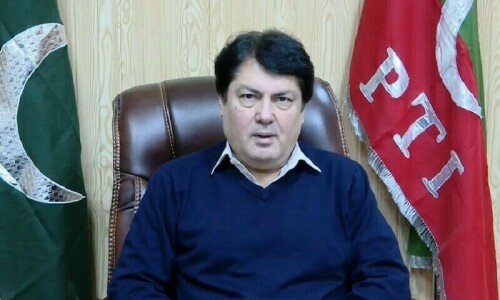
THIS is with reference to the report ‘Rampage in Kurram claims 21 more lives’ (Nov 24), which mentioned that the toll had gone up to 64 within the preceding three days. The erstwhile Federally Administered Tribal Areas (Fata) region has once again become a focal point for conflicts. The fall of Kabul and the Taliban’s ascension to power have altered the dynamics of the region, creating uncertainty in comprehending the core issues underlying the conflicts.
There are four interconnected factors that need to be focussed on for sustainable peace in the region: land disputes, underdevelopment, governance model, and lack of political consciousness. Waziristan and Kurram districts are particularly affected by targeted killings, abductions, road and market blockades, and occasional crossfire. The road from Parachinar to Peshawar, which passes through Orakzai, has been inaccessible for two years, resulting in shortages of food and medicines.
The historical challenge of land disputes in the region has been a significant factor in instigating tribal conflicts. The nature of these conflicts in Waziristan and Kurram has evolved over decades.
For instance, land disputes in Waziristan exacerbate tribalism among various tribes. In contrast, land disputes in Kurram have transformed into sectarian conflicts.
The intensity of armed violence in Kurram surpasses that in Waziristan. Kurram is located less than 100km from Kabul, and has a sectarian divide within the local community.
Moreover, longstanding disputes over ownership of forests, hills, lands as well as water resources between the tribes on either side of this divide have resulted in sporadic incidents of communal violence since the 1930s.
However, the massive influx of Afghan refugees in the 1980s caused a significant distortion in the demographic as well as sectarian balance of the area. As such, the refugees introduced a militant brand of sectarian ideology, while the other side was radicalised by the Iranian revolution.
Similarly, the conflict in Orakzai primarily centres on the ownership of a shrine in Kalaya. Severe violence erupted in 1927, resulting in considerable exodus from the area.
Following the shrine’s renovation in 1999, the local Taliban in 2000 warned the ‘rivals’ against returning to Kalaya, and demolished a partially constructed mosque. They also took several other steps to make life tough for those not agreeing with their belief system.
In October 2006, a week-long conflict over the shrine’s ownership culminated in its destruction. Subsequently, both sects were prohibited from entering the disputed area. Tensions persisted in Kalaya, with a suicide car bombing at a jirga resulting in six fatalities in December 2008.
On the other hand, the sectarian conflict in Orakzai encompasses an economic dimension as well, with one community being comparatively affluent by way of possession of substantial properties, including forests and hills. The other community impedes the harvesting and sale of timber.
Besides, the region, even after merger with Khyber Pakhtunkhwa (KP), remains underdeveloped in social, political and administrative aspects. Economic under-development results in the inadequacy of political and social structures essential for effective governance. These structures encompass democratic and representative systems, civic organisations as well as professional associations.
Unfortunately, the erstwhile Fata region remains marginalised in terms of governance. The governance model has failed to adequately address accounta-bility, risk management, responsibility, rule of law, and integrity.
The governance in the region requires structural reforms based on inclusive policies with the consent of local popu- lations. The state authorities must address the persistent unrest in the area.
Tufail Dawar
Islamabad
Published in Dawn, November 30th, 2024











































Dear visitor, the comments section is undergoing an overhaul and will return soon.